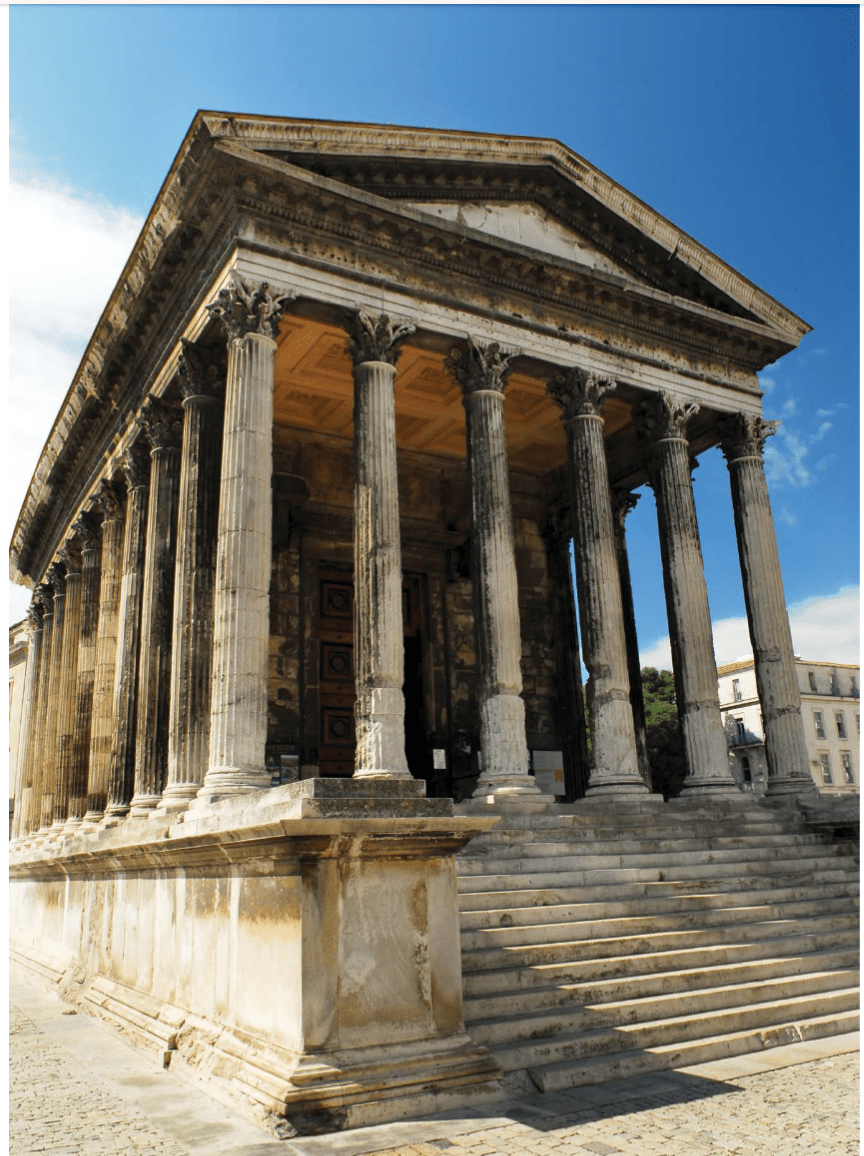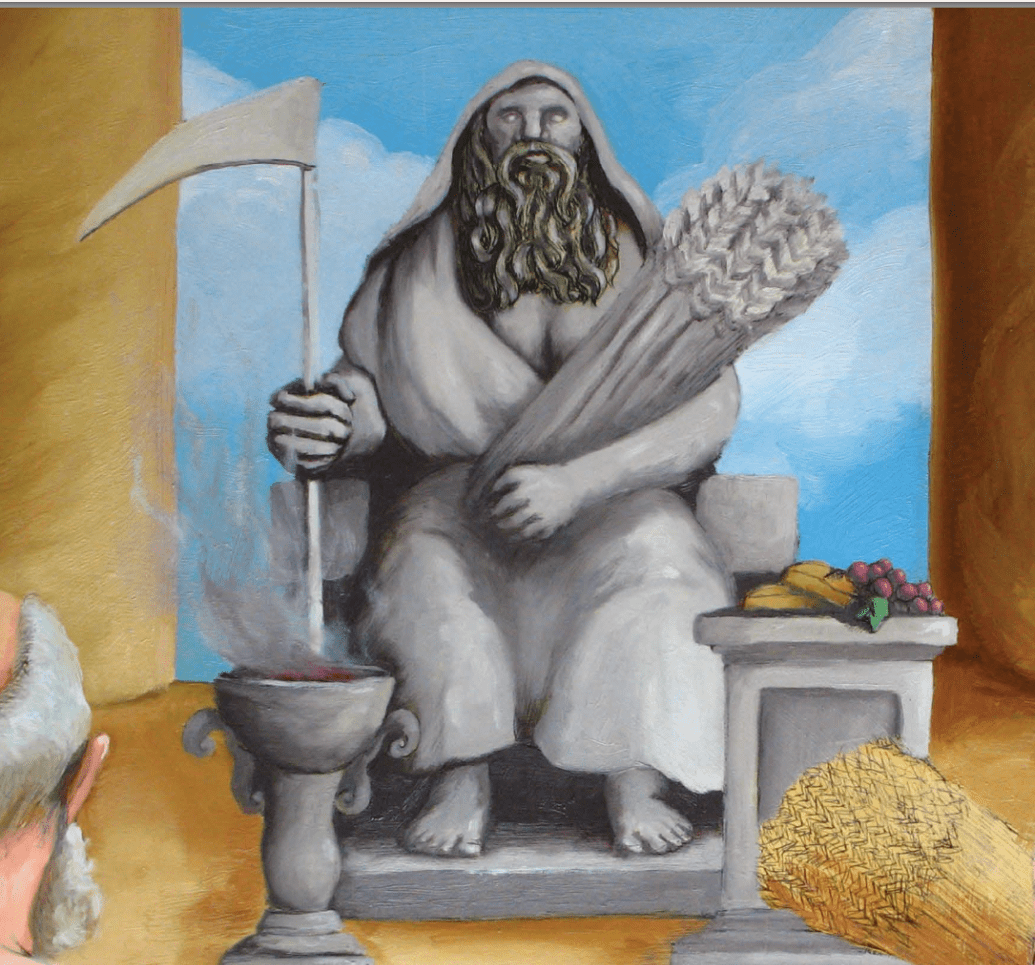Why did the Romans use different names for the gods and goddesses worshipped by both Romans and Greeks?
A. Because they worshipped completely different gods.
B. Because they only worshipped one god. C. Because the Romans had a different language.
The Romans have different names for the gods because C. the Romans had a different language.
Who was the Greek goddess of wisdom, and what was her Roman counterpart called?
A. Athena; Minerva
B. Aphrodite; Venus
C. Hera; Juno
The Greek/Roman goddess of wisdom was A. Athena; Minerva.
What was the Roman name for the Greek god of war Ares?
A. Mars
B. Apollo
C. Mercury
The Roman name for the Greed god of war is A. Mars.
Where did the Romans believe some of the gods and goddesses lived?
A. In the underworld.
B. In a palace on Mount Olympus.
C. On an island in the Mediterranean Sea.
Romans believed the gods and goddesses lived B. In a palace on Mount Olympus.
What do some historians believe about the Roman gods and goddesses?
A. The Romans invented their gods independently.
B. The Romans rejected the gods of the Greeks.
C. The Romans "borrowed" these gods from the Greeks.
Historians believe that C. The Romans "borrowed" these gods from the Greeks.
What was a common belief shared by the Romans, Greeks, and other Mediterranean cultures?
A. The worship of a single, all-powerful god.
B. The idea that gods and goddesses had specific roles.
C. The rejection of religious practices.
They all believed B. The idea that gods and goddesses had specific roles.
Why was there cultural exchange between ancient Italy and Greece?
A. Travel by boat between the regions was easier than travel by land.
B. The countries were ruled by the same empire.
C. The countries shared a common language.
There was a cultural exchange between the two countries because A. Travel by boat between the regions was easier than travel by land.
What was one result of the close contact between ancient peoples of Greece and Rome?
A. Frequent wars over control of islands.
B. The blending and exchanging of ideas and beliefs.
C. Complete separation of their cultures.
The result was B. The blending and exchanging of ideas and beliefs.
Why was Athena often depicted with a spear and helmet?
A. She was the goddess of hunting.
B. She ruled over the sea and storms.
C. She was also considered a goddess of war.
Athena was shown with a spear and helmet because C. She was also considered a goddess of war.
Who was Zeus, according to Greek mythology?
A. The god of war.
B. The king of the Greek gods.
C. The god of the sun, music, and healing.
Zeus is considered B. The king of the Greek gods.
Why did Romans hold the yearly Saturnalia Festival in late December?
A. To celebrate the founding of Rome.
B. To mark the beginning of the Roman New Year. C. to honor Saturn and keep him and other gods happy
The Romans held the Saturnalia Festival to C. honor Saturn and keep him and other gods happy.
What was a temple used for?

A temple was used to worship the gods in ancient Rome.
What items were typically placed on the altar inside a Roman temple to keep the gods happy?
A. Tools and weapons.
B. Gifts or offerings for the god, such as food or sacrifices.
D. Books and scrolls about Roman history.
To keep the gods happy, there were B. Gifts or offerings for the gods, such as food or sacrifices.
What role did priests play in Roman temples?
A. They were responsible for building and repairing temples.
B. They lived in the temple and performed rituals to please the god.
C. They organized games and festivals.
B. They lived in the temple and performed rituals to please the god.
What did the Romans believe about the gods?
A. There was only one god in charge of everything.
B. Gods had no influence on daily life.
C. Many gods played specific roles in maintaining order in the world.
The Romans believed: C. Many gods played specific roles in maintaining order in the world.
Why did ancient Romans believe in gods?
A. To explain natural events like floods, bad harvests
B. To promote scientific research and experiments.
C. To avoid conflicts with neighboring civilizations.
The ancient Romans believed in gods to A. To explain natural events like floods, bad harvests.
Who was the Roman god of harvest?
Saturn was the Roman god of harvest.
If a Roman farmer had a bad harvest, what did he think Saturn was feeling?
The farmer would think that Saturn was mad and caused a bad harvest.
If a Roman farmer had a good harvest, what would he think Saturn was feeling?
What is the name of this curved tool that is associated with?
a. spade
b. scythe
c. trident

The name of the tool is b. a scythe.